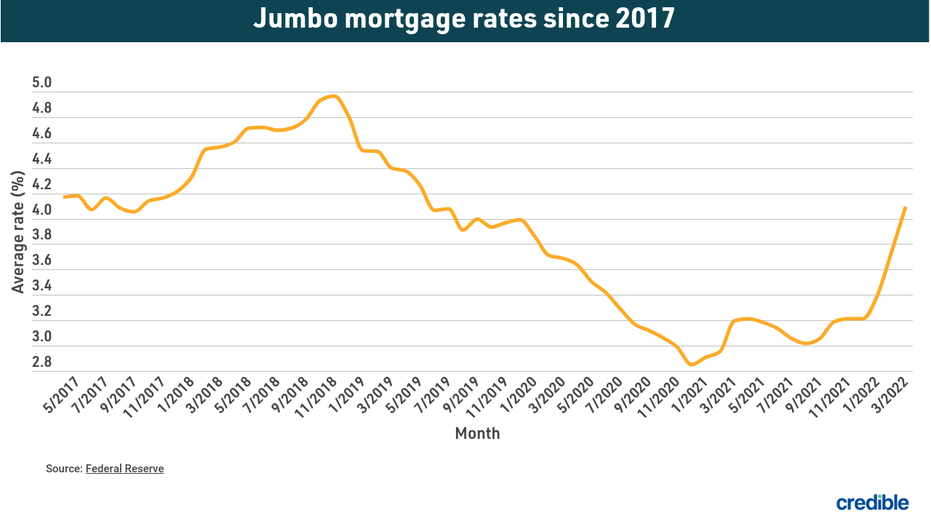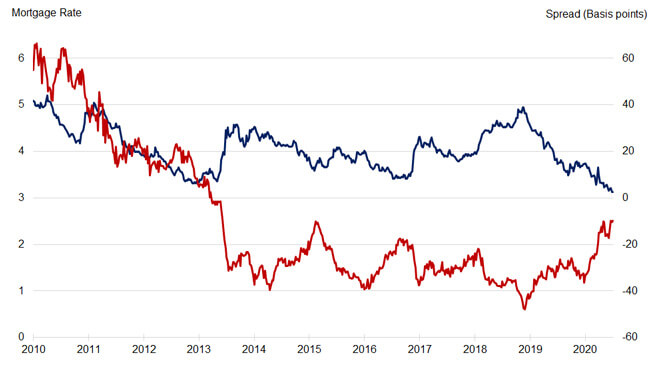Navigating the Jumbo Loan Landscape: Crucial Insights for First-Time Homebuyers
Browsing the complexities of jumbo fundings presents an unique collection of difficulties for new buyers, especially in a progressing real estate market. Understanding the crucial qualification demands and potential benefits, together with the disadvantages, is critical for making notified choices. Furthermore, developing a solid monetary technique can dramatically enhance your leads.
Recognizing Jumbo Finances

Since jumbo finances are not backed by government-sponsored entities, they carry different underwriting criteria and call for more comprehensive financial paperwork. This difference can lead to higher passion rates contrasted to traditional fundings, provided the increased danger to loan providers. Jumbo financings additionally offer special advantages, such as the capability to finance higher-value homes and potentially more adaptable terms.
First-time property buyers must likewise be conscious that protecting a jumbo loan frequently necessitates a bigger down payment, typically ranging from 10% to 20%. In addition, consumers are normally anticipated to demonstrate strong credit reliability and a stable income to qualify. Recognizing these nuances can encourage novice buyers to make educated choices when checking out big financing options in their search of homeownership.
Qualification Needs
Protecting a jumbo financing requires conference particular eligibility needs that vary dramatically from those of traditional loans. Unlike standard car loans, which are typically backed by government-sponsored entities, jumbo car loans are not guaranteed or guaranteed, resulting in more stringent requirements.
One primary requirement is a higher credit report. Lenders generally expect a minimal rating of 700, although some may enable reduced scores under particular conditions (jumbo loan). Additionally, borrowers must demonstrate a robust financial profile, which includes a low debt-to-income (DTI) proportion, typically no higher than 43%. This guarantees that consumers can manage their monthly repayments along with other economic commitments.
Furthermore, a lot of lenders call for significant documentation, consisting of evidence of income, asset declarations, and income tax return for the past two years. A considerable down settlement is likewise necessary; while traditional finances may permit deposits as low as 3%, big loans frequently necessitate at the very least 20%, relying on the lender and the financing quantity.

Advantages of Jumbo Financings
For numerous first-time homebuyers, jumbo loans offer distinctive benefits that can assist in the journey toward homeownership. One of the primary benefits is the capability to fund residential properties that go beyond the adapting funding restrictions set by government-sponsored entities. This adaptability allows buyers to access a bigger series of high-value properties in affordable property markets.
Additionally, jumbo lendings commonly feature attractive rate of interest that can be less than those of conventional financings, specifically for borrowers with strong credit score accounts. This can result in significant savings over the life of the lending, making homeownership extra budget friendly. Jumbo finances generally allow for greater lending quantities without the requirement for exclusive home loan insurance policy (PMI), which can additionally lower monthly settlements and general costs.

Prospective Drawbacks
Several prospective property buyers may find that jumbo loans featured significant drawbacks that call for mindful factor to consider. Among the main problems is the stringent credentials criteria. Unlike conforming car loans, jumbo view it now car loans typically call for higher credit rating, often exceeding 700, and substantial income paperwork, making them less obtainable for some customers.
Additionally, jumbo fundings generally feature greater rate of interest prices contrasted to conventional loans, which can lead to boosted regular monthly repayments and total loaning costs. This costs may be specifically difficult for novice property buyers who are currently browsing the financial complexities of purchasing a home.
An additional noteworthy drawback is the bigger down payment demand. Several loan providers expect a minimum down payment of 20% or even more, which can posture a difficulty for buyers with limited savings. Moreover, the absence of government support for big loans results in less beneficial conditions, raising the threat for lending institutions and, as a result, the borrowing expenses for property owners.
Finally, market changes can considerably influence the resale worth of premium homes funded with big car loans, adding an aspect of financial changability that new property buyers may discover daunting.
Tips for First-Time Homebuyers
Browsing the complexities of the homebuying procedure can be frustrating for newbie customers, especially when considering big fundings (jumbo loan). To streamline this journey, adhering to some essential methods can make a considerable distinction
First, inform on your own on jumbo fundings and their specific requirements. Recognize the different financing requirements, including credit report, debt-to-income ratios, and deposit expectations. Commonly, a minimal credit history of 700 and a deposit of at the very least 20% are necessary for approval.
2nd, involve with a well-informed mortgage specialist. They can provide insights customized to your monetary circumstance and help you browse the intricacies of the big lending landscape.
Third, think about pre-approval a knockout post to enhance your buying placement. A pre-approval letter signals to sellers that you are a severe customer, helpful hints which can be useful in open markets.
Last but not least, do not forget the value of budgeting. Aspect in all expenses related to homeownership, consisting of residential or commercial property taxes, upkeep, and property owners' insurance coverage. By following these ideas, new purchasers can approach the big car loan process with higher confidence and clearness, improving their chances of successful homeownership.
Verdict
In verdict, navigating the jumbo financing landscape needs an extensive understanding of eligibility criteria, benefits, and prospective disadvantages. Newbie buyers can improve their opportunities of success by keeping a solid credit history, handling their debt-to-income ratio, and preparing for larger down settlements. Engaging with experienced home mortgage specialists and getting pre-approval can better strengthen positions in competitive markets. Inevitably, thorough prep work and education and learning relating to big car loans can bring about even more enlightened decision-making in the homebuying process.
When browsing the complexities of the housing market, recognizing big fundings is vital for novice property buyers aiming for residential properties that surpass traditional financing restrictions. Big loans are non-conforming car loans that usually go beyond the adjusting car loan restriction set by the Federal Housing Money Firm (FHFA)In addition, big finances commonly come with appealing rate of interest prices that can be lower than those of typical car loans, specifically for debtors with strong credit history accounts. Big fundings normally permit for higher financing amounts without the demand for private mortgage insurance (PMI), which can further lower monthly repayments and overall expenses.
Unlike adjusting loans, jumbo financings usually require greater credit score ratings, commonly going beyond 700, and significant earnings documents, making them less accessible for some debtors.